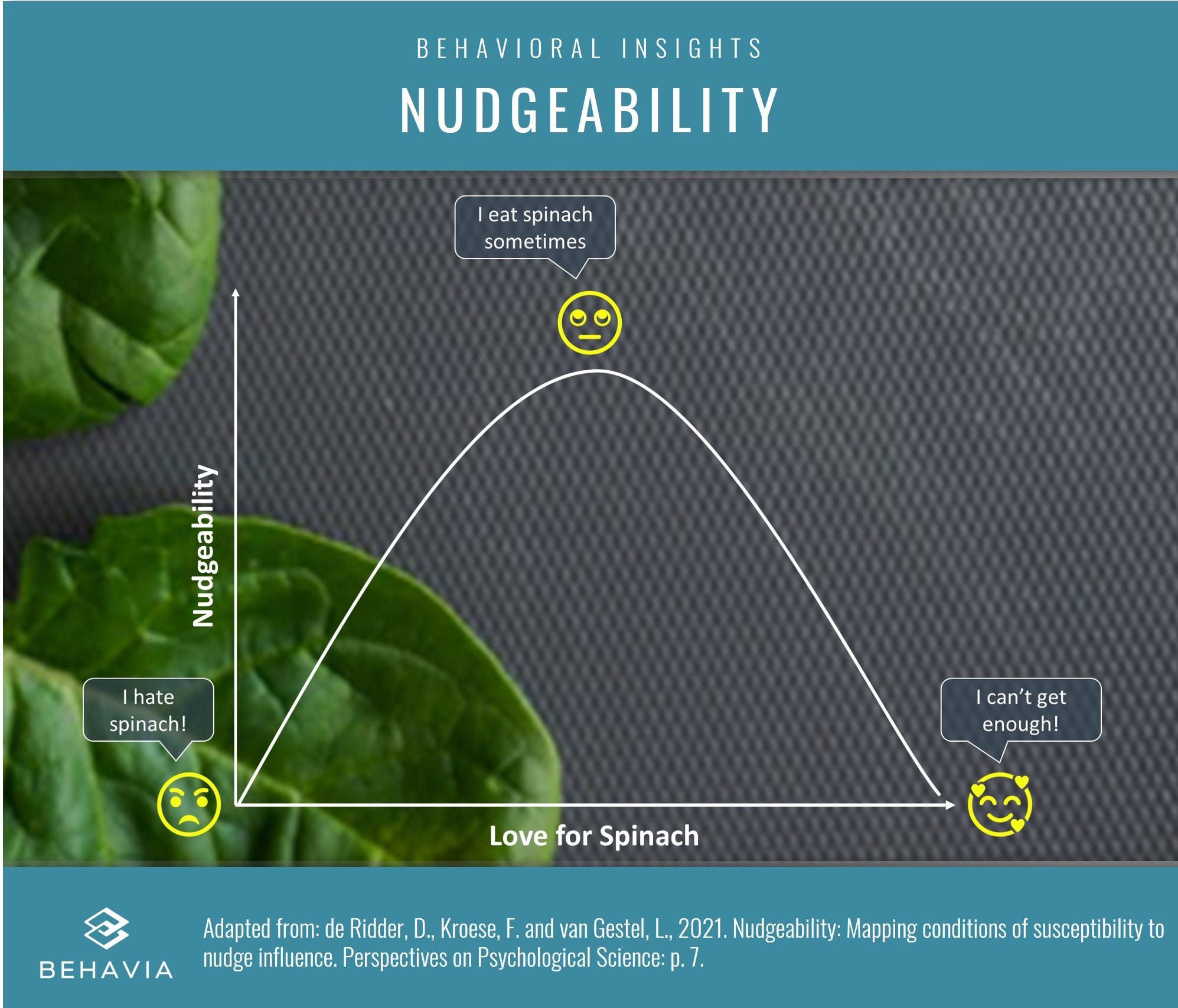On the limits of nudging

A newly published article by de Ridder et al. (2021) investigates what makes people ‘nudgeable’, i.e. receptive to nudge interventions. They argue that nudgeability depends on the strength of preexisting preferences.
- When people already have strong preferences that are in line with the promoted behavior, nudges will be redundant. A person loving spinach will eat it anyway, irrespective of any nudge.
- When people have preferences that oppose the promoted behavior, they will ignore the nudge. A person hating spinach is unlikely to eat more spinach just because of a nudge.
- Nudges have the highest chances to influence people’s behaviors when people are undecided or have conflicting goals. A person eating spinach occasionally is likely to be receptive to a nudge that promote spinach consumption.
The article is a reminder that nudging as a policy instrument is not a magic wand that operates beyond people’s preferences. Nudging can only work when preferences are known and it is clear that the barrier to action is indifference or that people are in doubt about their action.